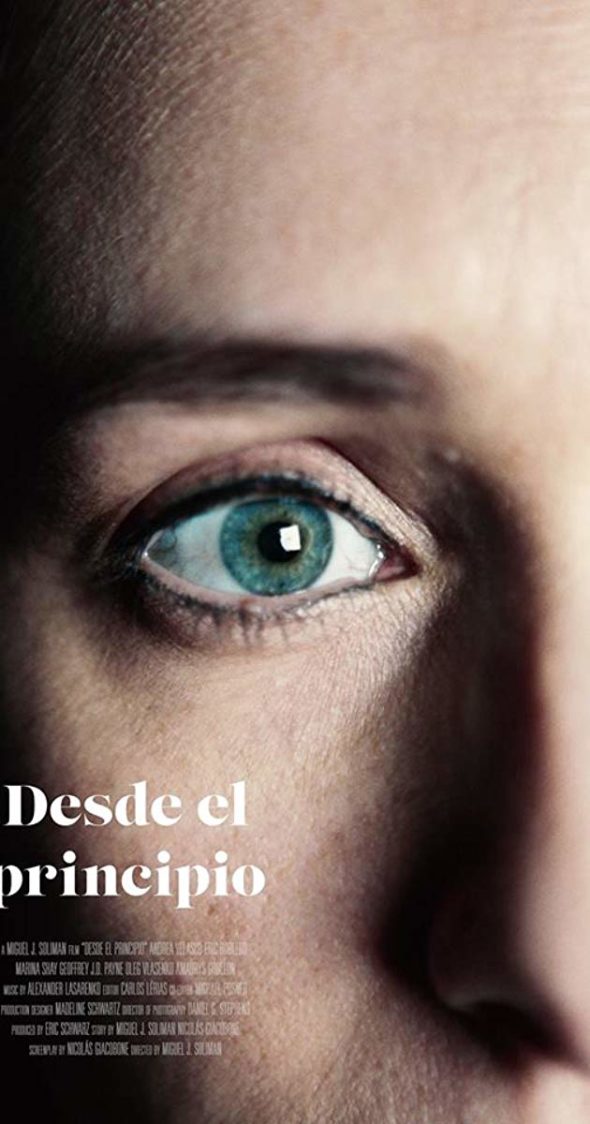Submittable has partnered with the AT&T Film Awards since 2017 to celebrate emerging filmmakers who are shaping the future of entertainment with innovative filmmaking while sharing their unique stories. The 2020 edition features a variety of categories, including Spanish-language, youth film concept, mobile/360/drone, virtual reality, and merged or augmented reality. The awards feature an additional prize for the best film by an underrepresented filmmaker.
Past winners have received cash prizes up to $10,000, meetings with film executives, and a scholarship for the best Spanish-language film winner to attend the summer filmmaking program at USC Cinematic Arts in Los Angeles.
The USC Cinematic Arts scholarship has been a featured prize of the AT&T Film Awards for several years now. In 2017 Miguel J. Soliman won the Spanish-language category and the scholarship, which have both changed his life as a filmmaker. We recently chatted with Miguel about how his life has been impacted by the AT&T Film Awards.
What prompted your interest in filmmaking?
It was a deep sense of curiosity. There was no censorship in my home and so I wasn’t restricted to just watching cartoons. I watched what my parents watched. One of my first memories was sitting down with them and watching Nightmare on Elm St. I had this knowledge of “this is fake,” and I knew somehow that all of it was crafted. I knew it was all fake, which bred a curiosity.
Then when DVDs came out, they had all these extra features about how they made the films and I became obsessed with them.
What was the most rewarding part of winning the AT&T Film Awards Spanish-language category?
Winning the AT&T Awards was just flat out cool.
In terms of specifically winning the Spanish-language category; I’m very proud of being a Latino but I don’t advertise being a Latino director. I just wanted to submit for people to see it. I didn’t know the film would have any shelf life when I submitted, and then almost 30 film festivals featured it as well, but I wasn’t expecting it.
When I heard that I had won, they told me I had won [a place in] the film program at USC and I could film on the Warner Brothers’ lot. The real prize though was when I heard I would be living with other winning filmmakers from Latin America. We got very close and since then we’ve become lifelong partners. We’re going to pitch a full-length feature film to AT&T. All four of us have a part in the script, which is an anthology. People were coming in with endings in mind and scenes and we eventually just ended up with a full-length script.
That was the real prize for me though. I ended up meeting people that have become partners for life in what I want to be doing. It was a happy accident, and I don’t think AT&T knew that would happen either.
Your winning film, Desde El Principio (From the Beginning), revolves around the shared struggle of two voice actors as they perform voice-overs in a recording studio. What inspired the film?

To be honest, it was just my lack of communication with women. I tried to think, “What is it about me that I’m not ok with sharing, what is the issue with me?” And I realized it was because I didn’t communicate well. I lost a lot of relationships because of that. And all the people involved felt it too.
Did creating the film help you improve on those communication skills?
I don’t think it did when I was filming it, but more so in the process of writing the film. It was only eight or nine sheets of paper for the script but it felt so much heavier than just eight or nine pages.
What were you trying to convey with the film? A certain theme? A certain message?
I don’t think I made a message film, I just made a reflection film. The theme is lack of communication, and I think what you walk away with is, “Honesty is the best policy.”
People said a lot about the man being in a wheelchair and why that becomes clear so late in the film. It’s because I wanted people to see him as a man, not just a man in a wheelchair. You need to see him emotionally as a person right from the start, and when you finally see his condition, it’s just incidental.
What tips or words of encouragement do you have for people looking to submit to the AT&T Film Awards?
The best thing you can do is be honest with yourself. If you have a tough time with that then I would say the worst that could happen is you don’t get it [the award]. Honestly when AT&T and similar companies will run programs like this… they encourage beginners and up and coming filmmakers.
I was petrified of putting my film out as I made it right out of college. If I shot that film any other way, it was just a boring conversation in a room. As long as there is a story in there, your audience is more forgiving when they can feel it. I think that’s important.
You don’t want to be a big fish in a little pond or even a little fish in a big pond. Go to film fests before you submit. Know what’s out there: what is the competition, what is your network. Knowing where you can fit in our stand out is essential, it’ll cost you time, emotional pain, and money if you don’t.
This announcement was sponsored by Submittable partner AT&T Film Awards. Interested in more creative calls and opportunities? Sign up for our creative opportunities email.
